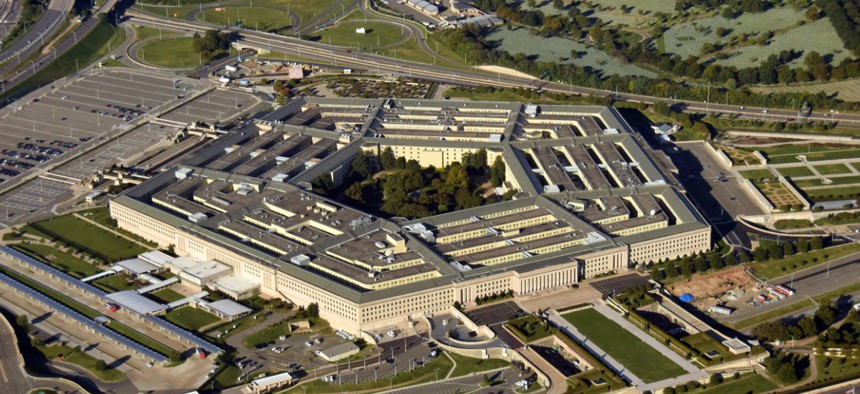Biden’s Defense Nominees Push for Countering Cyber Threats and China’s Tech Progress

Ivan Cholakov/istockphoto
The department is rethinking operations amid the changing conflict landscape.
The Defense Department needs to pursue cybersecurity improvements and creative, agile operational concepts to quickly reach technological advantages and prepare for concerning potential elements of next-generation warfare, according to several of President Joe Biden’s nominees for top agency roles.
“Today, we have entered a new era of strategic competition and we must update our policies, our operations, our capabilities and our workforce to meet the moment,” said Alexandra Baker, the administration's pick to serve as the deputy Defense undersecretary for policy. “I believe that there is no time to waste.”
Baker spoke Tuesday at a nomination hearing held by the Senate Armed Services to consider her, as well as Nickolas Guertin to be the DOD’s director of operational test and evaluation; John Coffey to be general counsel of the Navy; and Douglas Bush to be the Army’s assistant secretary for acquisition, logistics and technology.
Echoing the Defense secretary and interim guidance from the administration, Baker referred to China as a “pacing” challenge and threat.
“It is the only competitor that is capable of combining its economic, diplomatic, military and technological power to mount a sustained challenge to a stable and open international system,” she said. “To meet this challenge, we will need to invest in capabilities that are relevant not only to the last fight—but to future ones.”
The hearing comes not long after the United States’ chaotic withdrawal from Afghanistan, and as the nation faces increasingly serious threats in cyberspace, like complex new risks to critical infrastructure and ransomware attacks that have immobilized American schools and hospitals. During the event, the nominees noted that non-state and state actors are quietly working to exploit America’s vulnerabilities in the virtual domain and developing powerful weapons to use in the real world—such as hypersonic missiles, which travel much faster than the speed of sound.
“I think that [China has] pursued a strategy of seeking to blunt U.S. advantages over a number of years. So not only in terms of hypersonics, but space and counter space, cyber—all of these are areas that, if confirmed, I would seek to prioritize,” Baker said.
Bush, who spent years on the Hill and was nominated to serve as the Army’s assistant secretary, expressed his intent to place a “laser-like focus on program execution and performance to ensure rapid delivery of improved equipment to our soldiers,” help the branch get better at buying and using software and return to a sharp focus on supply chain and cybersecurity in procurement efforts as “both are necessary to deliver capabilities uncompromised by the aggressive efforts of China and Russia.”
Drawing from experience in both Navy weapons and software development, Guertin noted that “it’s very affordable to attack” U.S. weapon systems before they make it to the field, or the kinetic stage of fights. If confirmed as the department’s T&E lead, he said he would encourage the operational testing community to implement and architect cybersecurity-centered principles and protections in the earliest stages of product development and ahead of any evaluations.
“It wouldn't be a big deal if we weren't being attacked all the time,” he said. “And if we are, we need to position ourselves well for that.”
The Defense nominees also spotlighted plans to focus on pursuits involving emerging technologies like digital twins, artificial intelligence and machine learning.
Guertin noted that Carnegie Mellon University’s Software Engineering Institute is engaging in research into how AI and ML could be used to spot insider threats who try to illegally transfer government secrets—such as the former Navy nuclear engineer and his wife who were recently charged for allegedly trying to sell military secrets via an SD card.
“If confirmed, it would be a pleasure to look into that and find out how we can be more effective in that area,” he added.
Nascent capabilities should also be considered with urgency to defend and protect against competitors in changing conflict environments, they noted—like with China, which reportedly recently tested a hypersonic missile but denies those claims.
“I think there are a number of emerging and advanced technologies that we need to do a better job of incorporating into our concepts and our work planning, and certainly I would put directed energy in that category,” Baker said.
An SASC spokesperson told Nextgov on Tuesday that the committee does not have a specific timeline for voting on nominees after their confirmation hearing. The earliest the vote could take place is Oct. 26.






